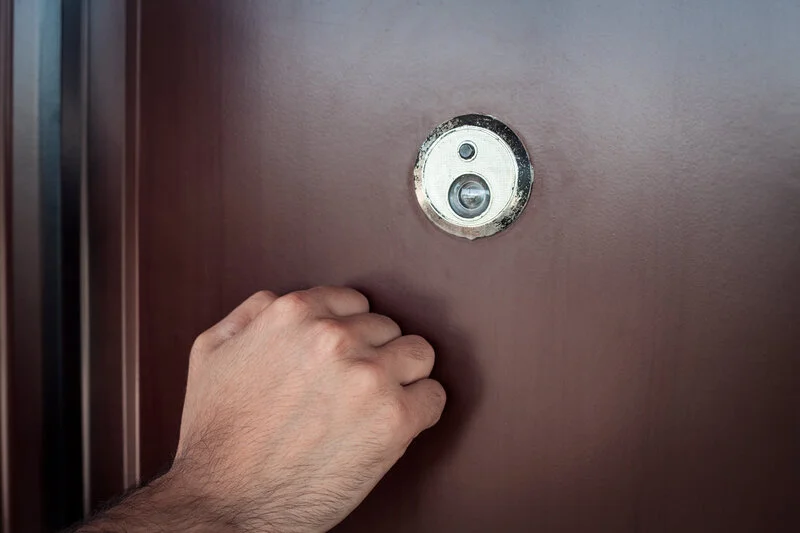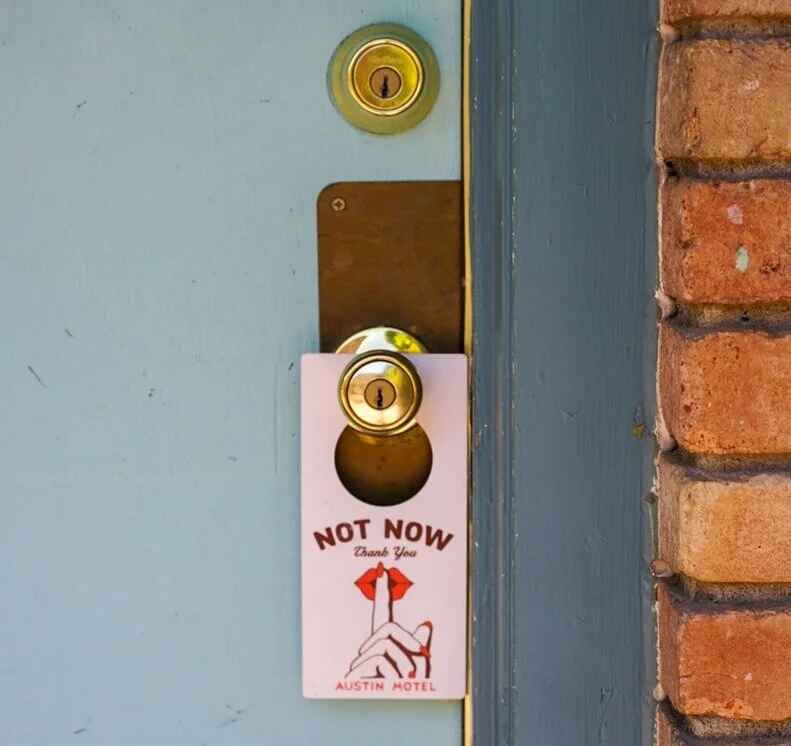Always assume that the room is occupied. Be sure to implement this in your training for staff members. After onboarding a new employee, I would often give them a tour of the facility, showing them a cross-section of different guest rooms along the way.
Approaching the first guest room, I would make the expectation clear that I would be showing them how to enter this guest room but they would be expected to follow proper procedure for entering all the following rooms.
First, I would point out the need to always look for a DND (Do Not Disturb) sign on the door. If there is a sign, we don't knock or attempt to enter the guest room. If I was training a front desk agent, I would be sure to reiterate the importance of removing the DND for guests that call down and request service. Phrasing like, "Of course, I'll have those pillows delivered. Please ensure your do not disturb sign isn't displayed outside your door."
Second, I would knock on the guest room door and announce myself before waiting for a response. I often provided what department I was in, being sure to speak clearly and loudly the words "guest services!" or "management!" Then wait for a response. The waiting is an important step that is often overlooked. Be sure to wait for a few seconds before entering the room.
Third, I then knock and announce myself as I enter the guest room with the intention to not startle anyone. Remember, this guest's room is their home away from home; don't enter without permission.


